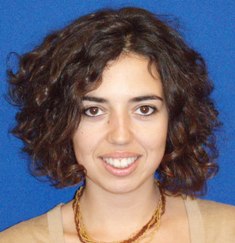
TPM training program in tissue banking & advanced therapies: A 15-year experience
Chloë Ballesté1,2, Alba Coll2, Aurora Navarro1, Ricard Valero 1,2, Vicens Torregrosa1, Fritz Diekmann 1, Constantino Fondevila1, Jordi Colmenero1, David Paredes1, Ramon Adalia1, Alberto Villamor1, Melania Istrate1,2, Estephan Arredondo2, Aleksandra Jovic2, Martí Manyalich1,2.
1Faculty of Medicine, University of Barcelona, Barcelona, Spain; 2DTI Foundation, Barcelona, Spain
Introduction: It is estimated that about 3-5 million tissue transplants take place every year. Similar to organ transplants, although regional differences exist, there is a growing global problem of tissue demand exceeding the available supply.
The aim of the study is to analyze and describe the experience of the specialized training in Tissue Banking and Advanced Therapies (TB&AT) during the past decade.
Materials and Methods: Transplant Procurement Management (TPM) along with the University of Barcelona has been promoting TB&AT face-to-face and online training programs under the umbrella of a Master in Donation and Transplantation. Data including number, profile (gender, nationality and background), grades and level of satisfaction are organized according the 2 training modalities during the period 2003-2018.
The syllabus of the program is based on the Guide to the Quality and Safety of Tissues and Cells for Human Application of the Council of Europe, now in the 3rd edition.
Results: Number & Profile: Since 2009, 352 participants from 62 different countries have attended the face-to-face training in 11 editions (135 MD, 54 RN, 13 laboratory technicians, 50 biologists and 100 professionals from other background related with the field). Most of them were women (58,5%).
Regarding the online course, since 2003, 541 participants from 63 different countries have been trained (179 MD, 76 RN, 44 biologists and 195 professionals from other background) and most of them were also women (59,3%).
Grades: Participants have been evaluated through different activities in the face-to-face and online training. In the face-to-face participation in the workshops, simulations and group activities have been considered. In the online, participants have been evaluated through tests, group activities and attendance to webinars. Average grades of face-to-face and online training in the last 5 editions are: 7,8/10; 7,5/10; 7,9/10; 8,1/10; 8,2/10.
Training assessment: Face-to-face sessions have been evaluated with 8,88/10 considering theoretical, practical sessions and course organization. Scores in the last 5 editions are: 9,32/10, 9,42/10, 9,24/10, 8,96/10, 8,78/10. Evaluation from the online course have also been positive with 8,48/10 average and have taken into account contents, activities and resources available. Scores in the last 5 editions are: 8,48/10, 8,7/10, 8,32/10, 8,62/10, 8,66/10.
Conclusion: The TB&AT training program improves knowledge, technical skills and competence development of the healthcare professionals involved in tissue banking activities. Considering that the main characteristics the students are internationality and heterogeneity, the improving measures must focus on promoting blended training, with a special focus on reinforcing the online part.
There are no comments yet...
